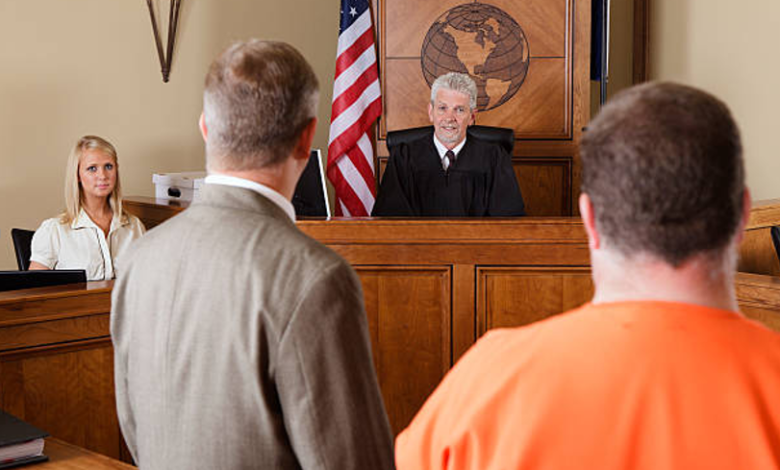What to Expect During a Criminal Trial in New Jersey

Facing criminal charges creates uncertainty and anxiety for most people. The legal system can feel overwhelming when you don’t understand the process ahead. Knowing what happens during each stage of a criminal trial helps reduce stress and allows better preparation for what’s coming next.
The criminal trial process in New Jersey follows specific procedures designed to protect defendants’ rights. Working with an experienced criminal lawyer in New Jersey becomes essential during this time, as they understand the nuances of state law and courtroom procedures. Legal representation can significantly impact the outcome through strategic defense planning and skilled cross-examination of witnesses.
Pre-Trial Proceedings and Preparation
Arraignment and Initial Appearance: The first court appearance happens relatively quickly after arrest, where formal charges are read aloud. During this hearing, the defendant enters a plea of guilty, not guilty, or no contest. The judge also addresses bail considerations and sets future court dates for the case to proceed.
Discovery Phase: Both prosecution and defense exchange evidence and witness lists during this critical period. Your attorney reviews police reports, witness statements, forensic evidence, and any video footage related to your case. This phase often reveals weaknesses in the prosecution’s case that can be exploited during trial.
Pre-Trial Motions: Defense attorneys file various motions to strengthen their client’s position before trial begins. Common motions include requests to suppress illegally obtained evidence, dismiss charges due to procedural errors, or change venue. These motions can sometimes resolve cases without going to trial.
Jury Selection Process
Voir Dire Examination: Potential jurors answer questions from both attorneys and the judge to determine their suitability. This process ensures jurors can remain impartial and haven’t formed opinions about the case beforehand. Attorneys can challenge jurors they believe might be biased against their client.
Jury Composition: New Jersey criminal cases typically require twelve jurors for felony charges and six for misdemeanor cases. The selection process can take several hours or even days depending on the case’s complexity. Both sides want jurors who will be receptive to their arguments and evidence.
Opening Statements and Case Presentation
Prosecution’s Opening: The state presents its theory of the case and outlines evidence they plan to introduce. Prosecutors must prove guilt beyond a reasonable doubt, which represents a high burden of proof. They typically present their strongest evidence first to make a powerful initial impression.
Defense Opening Strategy: Your attorney may present an opening statement immediately after the prosecution or reserve it until later. This statement previews the defense strategy and highlights weaknesses in the state’s case. Sometimes attorneys choose to wait, allowing them to address prosecution evidence more effectively.
See also: What to Expect When Hiring a Family Lawyer in North Bay: A Step-by-Step Guide
Evidence Presentation Phase
The prosecution presents witnesses and physical evidence to support their case against you. Defense attorneys cross-examine each witness to challenge their credibility and testimony. This back-and-forth process often determines the trial’s outcome, as effective cross-examination can raise reasonable doubt about guilt.
Witness Testimony: Prosecutors call various witnesses including police officers, victims, and expert witnesses to testify. Each witness faces cross-examination from the defense attorney, who works to expose inconsistencies or bias. The quality of cross-examination often makes the difference between conviction and acquittal.
Physical Evidence: Items like fingerprints, DNA samples, weapons, or documents are introduced through witness testimony. Your attorney challenges the chain of custody and reliability of this evidence. Sometimes evidence gets excluded if proper procedures weren’t followed during collection or storage.
Defense Case Presentation
Your attorney may present witnesses and evidence supporting your innocence or raising reasonable doubt. Defense strategies vary widely depending on the specific circumstances of each case. Some defendants choose to testify on their own behalf, though this decision carries both risks and potential benefits.
Expert Witnesses: Defense teams sometimes call forensic experts, medical professionals, or other specialists to challenge prosecution evidence. These witnesses can provide alternative interpretations of physical evidence or testimony. Their credibility often depends on their qualifications and the persuasiveness of their explanations.
Character Witnesses: Friends, family members, or colleagues might testify about your reputation and character in the community. This testimony helps humanize defendants and can influence jury perceptions. However, character evidence opens doors for prosecution to introduce negative information about past behavior.
Closing Arguments and Deliberation
Final Presentations: Both attorneys summarize their cases and argue why jurors should reach their preferred verdict. These arguments tie together evidence presented during trial and address any weaknesses exposed during testimony. Effective closing arguments can sway undecided jurors in either direction.
Jury Instructions: The judge explains applicable laws and the burden of proof before deliberation begins. Jurors must understand legal definitions and standards they’ll apply when reviewing evidence. These instructions significantly influence how jurors interpret testimony and evidence they’ve heard.
Deliberation Process: Jurors discuss the case privately and work toward reaching a unanimous verdict in felony cases. This process can take hours, days, or even weeks depending on case complexity. Sometimes juries ask questions or request to review specific evidence during their discussions.
The deliberation phase creates anxiety for defendants and their families as they wait for the final decision.
Conclusion
Understanding the criminal trial process helps defendants prepare mentally and emotionally for what lies ahead. Each phase presents opportunities for skilled attorneys to challenge evidence and protect their clients’ rights. The complexity of criminal proceedings makes experienced legal representation invaluable for achieving favorable outcomes. If you’re facing criminal charges, consult with a qualified attorney who can guide you through this challenging process and fight for your best interests.


